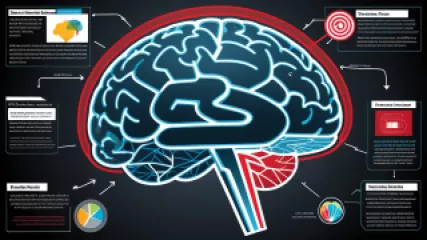Understanding the Cognitive Impact of Advertising: A Research Summary
Advertising has become an integral part of our daily lives. From billboards to television commercials, we are constantly bombarded with messages designed to influence our behavior and purchasing decisions. But have you ever stopped to consider the cognitive impact of advertising? How does it affect our thoughts, emotions, and decision-making processes? In this research summary, we will delve into the fascinating world of advertising psychology and explore the ways in which advertising can shape our minds.
The Power of Advertising Influence
Advertising holds immense power when it comes to shaping consumer attitudes and behaviors. It has the ability to create desire, evoke emotions, and influence our perceptions of products and brands. Through carefully crafted messages and persuasive techniques, advertisers seek to capture our attention and convince us to buy their products or services.
Research has shown that advertising can have both short-term and long-term effects on our cognition. It can impact our memory, attention, and decision-making processes. By understanding these cognitive mechanisms, advertisers can create more effective campaigns that resonate with their target audience.
The Media Impact on Consumer Behavior
In today's digital age, the media landscape is constantly evolving. With the rise of social media and online platforms, advertisers have access to a vast array of channels to reach consumers. This has led to a proliferation of advertising messages and an increased competition for our attention.
Studies have shown that exposure to advertising can influence our perceptions of reality and shape our beliefs and attitudes. The media we consume plays a significant role in shaping our worldview and influencing our behavior. Whether it's through subliminal messaging or explicit persuasion techniques, advertisers have the power to sway our opinions and choices.
The Emotional Support of Advertising
Advertising not only influences our cognition but also provides emotional support. Brands often tap into our emotions to create a connection with consumers. By associating their products with positive emotions such as happiness, success, or love, advertisers aim to create a sense of emotional attachment and loyalty.
Research has shown that emotional advertising can have a profound impact on consumer behavior. It can elicit strong emotional responses and create lasting memories. By tapping into our emotions, advertisers can create a deeper and more meaningful connection with their audience, ultimately influencing their purchasing decisions.
A Research Summary: Understanding the Cognitive Impact of Advertising
In a comprehensive review of existing research, we have explored the cognitive impact of advertising. Through a synthesis of various studies, we have identified key findings and insights that shed light on how advertising influences our cognition.
1. Attention and Memory
Advertising has the power to capture our attention and leave a lasting impression in our memory. Through eye-catching visuals, catchy slogans, and memorable jingles, advertisers strive to create an impact that lingers long after the initial exposure. Research has shown that emotionally arousing advertisements are more likely to grab our attention and be remembered.
2. Perception and Beliefs
Advertising can shape our perceptions of reality and influence our beliefs and attitudes. By presenting a carefully curated image of their products and services, advertisers can create a favorable impression in the minds of consumers. This can lead to brand loyalty and repeat purchases, as our beliefs about a product or brand are reinforced through advertising messages.
3. Decision-Making Processes
Advertising plays a crucial role in our decision-making processes. Through persuasive techniques such as social proof, scarcity, and authority, advertisers seek to influence our choices and convince us to take action. Research has shown that advertisements that tap into our emotions and appeal to our values are more likely to be persuasive and drive consumer behavior.
In Conclusion
Advertising has a profound cognitive impact on consumers. It shapes our thoughts, emotions, and decision-making processes. By understanding the power of advertising influence, marketers can create more effective campaigns that resonate with their audience on a deeper level.
As consumers, it is important to be aware of the cognitive impact of advertising and critically evaluate the messages we encounter. By being mindful of the techniques used by advertisers, we can make more informed decisions and ensure that our choices align with our values and needs.
Jeremiah Roberts, Researcher at the Institute of Advertising Psychology






